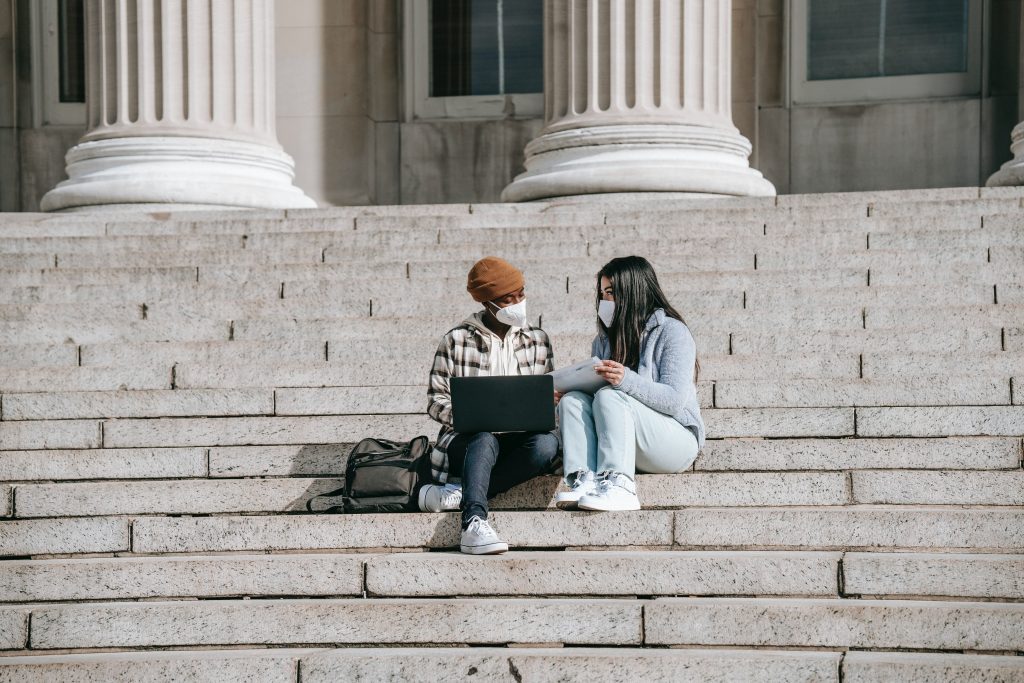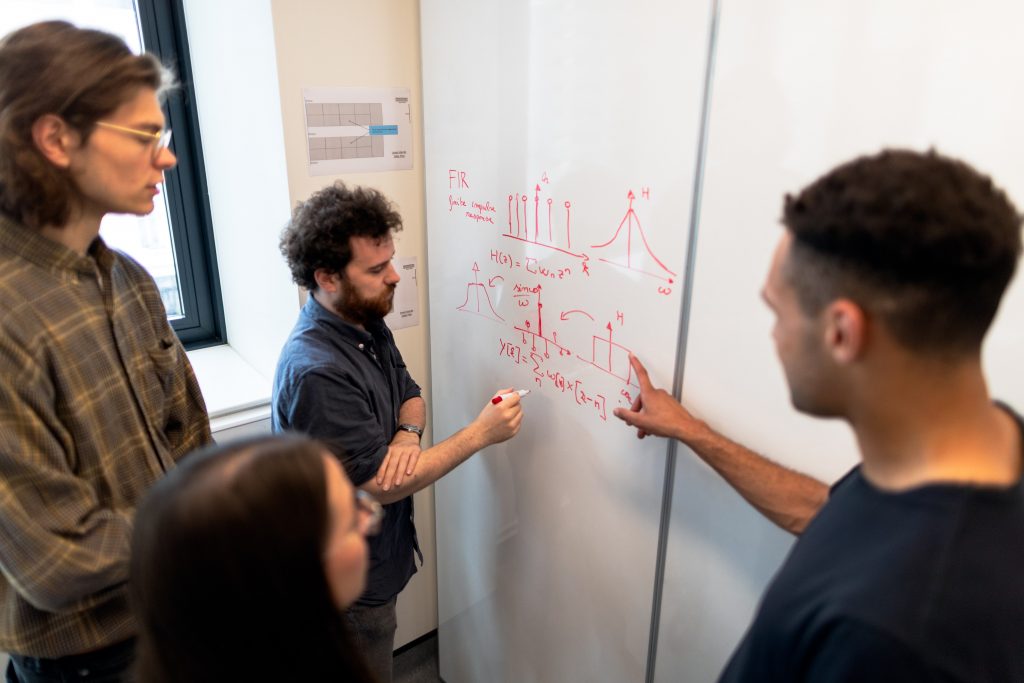Things I wish someone had told me when I was applying for PhDs
Applying for a PhD is often one of the first steps in a career in research, but it can be a very opaque process. Luckily for us, an anonymous author has offered a list of advice they wish they’d been given when they were making their applications. The advice is based on their own experience applying for PhD positions in the UK.
- Don’t be afraid to ‘shop around’. You will be spending at least three years of your life doing a PhD – make sure you find the best fit! In your application letter to a potential supervisor, you can, of course, state that you admire the work done in their research group as it shows that you are keen and have read relevant literature, but do not feel like you owe them anything if they consider you. There are plenty of funded PhD positions in the UK that remain unfilled every year.
- Follow your favourite academics, research groups and academic societies on Twitter and Facebook – this is where you will often find news about PhD projects. Check out the graduate research pages of universities and research groups you would like to apply to for advertised projects, and check whether academic societies that publish journals you read or organise conferences you have attended have adverts on their websites (e.g., EHBEA, CES, PSGB).
- If you are not offered the opportunity to meet current or former students in the research group you are applying to (you really should be!), contact them via email yourself and find out more about working in the supervisor’s group in a polite way. The worst that could happen is that they don’t get back to you but most people will be happy to talk about their experience.

Speak to your potential supervisor’s current or former students to find out more about the research group
- Big names often have little time. Be cautious if the potential supervisor says that they are currently overseeing the work of 10 students – they may not have much time for you.
- As part of your PhD interview, question your supervisor about the staff that will work in the research group for the duration of the project, e.g., are there any postdocs associated with the project, is there a technician in the group? You will most likely receive a lot of ‘hands-on’, practical help from these people while the supervisor will be more involved in interpreting the results you produce and drafting your first publications. If you are applying for a project that lists specific methods or skills you will acquire, seek assurances that your supervisory team or associated staff will provide training or lend you their expertise. It can be challenging to seek out support outside of your supervisory team after you start your PhD because academics are often too busy to take on extra supervisory responsibilities and do not welcome ‘orphaned’ PhD students with open arms, regardless of a student’s project or potential.
- This will be hard to assess but – does your supervisor have sufficient expertise in the area of research the project is advertised in, i.e., does the advertised project fit in with what the research group has been doing so far? For example, you might observe that all previous research in this group has been on memory in mice while the new project investigates bird migration. This will be tricky – your potential supervisor might just be a brilliant all-rounder who has decided to take a new research direction and you will have plenty of support throughout the process. Alternatively, you might end up building the necessary research base yourself which involves answering basic but crucial questions about your study system, e.g., ‘What trackers are we going to use to study these birds? Where are their wintering grounds?’, with little help from your supervisor due to their lack of expertise and connections in the field. This will be tough and you might need extra time at the end of your PhD while your peers are celebrating successful thesis defences.
- Don’t be afraid to apply for the top programmes even if you think your marks could be improved (remember that the most competitive programmes have waiting lists). The ability to perform well under exam conditions does not necessarily translate into a great performance as a researcher. In your cover letter, emphasise your achievements in research-based modules or internships. A potential supervisor will be more impressed by your contribution to a published paper than an 87% in an Immunology exam in your second year (although consistently good marks and departmental prizes certainly help – do highlight any modules that might be relevant to the PhD project).
- Ask current/former students if your potential supervisor has helped them find employment or establish academic collaborations. Good supervisors unashamedly promote their students at conferences or departmental talks. They will also have your back if you have problems with other academics, e.g., a co-author on a paper doesn’t get back to you for months or a collaborator bullies you for data.
- While doing a PhD is supposed to turn you into an independent researcher, you are still a student and should be supported in your learning – query the supervisor and current students about the level of training you will receive. In the worst-case scenario your supervisor would expect you to produce results using skills that you don’t have at that stage while providing no guidance on how to obtain them. A ‘sink or swim’ mentality in the group might benefit you in the long term (i.e., you will become truly independent if you manage to complete the project on your own which then makes you the ideal postdoc) but your well-being will most likely suffer in the process.

Ask about other staff in the group – are there postdoctoral researchers or technicians who will be able to offer you support and guidance?
- I would recommend applying to a medium-size research group in a larger department. That way you will not need to reach out to other universities if you are learning how to apply certain methods as part of your PhD. While your PhD will have a unique research question, it can be very isolating if, for example, you are the only PhD student in the department who investigates bird migration. It is also important that the feedback you receive from people in your department is rigorous and relevant which becomes impossible if nobody else has any knowledge about the methods you are applying.
- Moving institutions or research groups for a PhD is encouraged – but do make sure you have all the necessary information before you make that leap. If you have established a great working relationship with the supervisors of your Undergraduate or Masters project but decide to move somewhere else for further study, do keep in touch with them throughout your PhD, especially if their research is relevant to your interests. You will most likely continue collaborating with them long after you complete your PhD.
- I would recommend projects that don’t focus on just one question or set of skills – it will certainly make you more attractive to potential employers. For example, the DTPs (Doctoral Training Programmes) in the UK typically already incorporate training & academic placements in the first year of your studies before you settle on your main research question. If you have recently completed a Masters, you might think that you have already received enough scientific training but these programmes can offer you a chance to ‘cast your net wider’ in terms of academic collaborations and might benefit you later in your career.
- Don’t be afraid to clarify any questions you have about finances during the interview even though you might find it awkward to do so. The research group you are applying to might have a dedicated administrator/personal assistant that you can contact if you feel like you don’t want to raise this with your future supervisor. Doing a PhD will mean taking a pay cut for several years compared to your peers who opted for graduate-level jobs. Importantly, clarify the amount of money you will get each year for research expenses and be cautious of PhD studentships associated with external grants to the supervisor – make sure that these aren’t due to expire mid-way through your PhD.
- Most importantly, do remember that doing a PhD is only the first stage of your academic career. Things might inevitably go wrong at some point during your PhD due to factors outside of your control (e.g., cancelled field season due to covid-19) and even within your control (e.g., you drop an important external hard drive down a well in anger). While it is important to not lose passion for your PhD project, you will be much better placed to weather these storms if you do not perceive your PhD as your life’s work or a fundamental part of your being. This is easier said than done but don’t forget that you are so much more than your academic achievements to your friends and family.
About the author
This article was written by an anonymous author. When appropriate, Cultured Scene accepts anonymous articles. If you're interested in contributing anonymously to Cultured Scene, please contact the editors.
